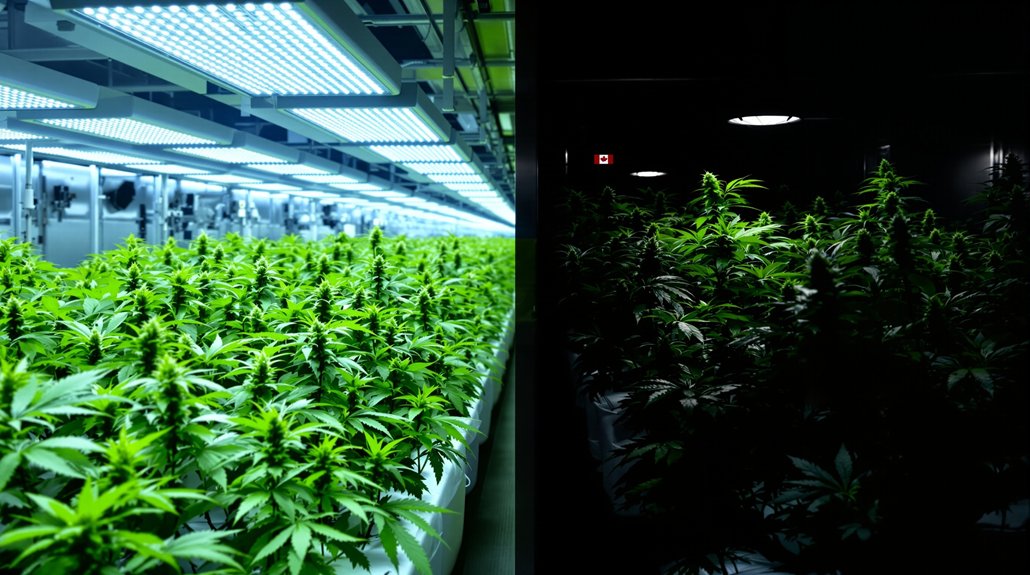Canada’s cannabis industry has demonstrated remarkable resilience and growth momentum in 2025, marking a significant turnaround from the consolidation period that defined 2022 and 2023. The sector now employs 93,465 people in cannabis production alone, representing a 6.6% annual growth rate from the previous year’s 87,697 positions.
When considering the broader legal cannabis ecosystem, the industry sustains approximately 98,200 jobs annually, establishing itself as a substantial employment generator across the country.
The economic impact extends far beyond job creation. The cannabis industry contributed CA$9.1 billion to Canada’s GDP in the first quarter of 2025, up from CA$8.3 billion in 2024. Since legalization, the sector has added over $76 billion to the national economy, demonstrating sustained value creation across multiple years of operation.
Production metrics reveal the industry’s expanding capacity and market penetration. Licensed marijuana production increased 10.6% from March 2024 to March 2025, while sales at licensed cannabis stores rose 4.7% year-over-year.
This growth coincides with the continued decline of unlicensed operations, as regulated businesses capture increasing market share through improved product quality and distribution networks. The implementation of seed-to-sale tracking using blockchain technology has significantly strengthened regulatory compliance while building consumer trust in product quality and safety.
The workforce composition reflects the industry’s evolution toward specialization and professionalism. High-demand roles now include quality assurance, regulatory compliance, product development, and laboratory analysis positions.
Employers increasingly seek candidates with hybrid skill sets combining agriculture, biotechnology, marketing, and compliance expertise. The average cannabis production business employs 67.1 people, indicating growth in organizational scale and operational complexity.
Geographic distribution shows concentrated growth patterns, with Ontario hosting approximately one-third of legal cannabis jobs, totaling around 31,900 positions. Alberta joins Ontario as a leading growth center, particularly in retail operations, cultivation, and manufacturing segments.
The retail footprint expansion remains most rapid in these provinces, supported by favorable regulatory environments and consumer demand.
Compensation trends indicate market stabilization, with posted cannabis sector wages rising 2.8% year-over-year in the first quarter of 2025. Average wage growth maintains steady levels between 3.4% and 3.6%, while wage pressure moderates compared to previous years, suggesting a more balanced labor market. However, revenue per employee has decreased over the last five years, reflecting operational challenges as the industry matures.
The industry’s strategic focus has shifted from aggressive expansion to operational profitability following the boom-bust cycle experienced earlier. Growth now concentrates in retail operations, cannabis-infused products, and emerging export channels connected to new legal markets. Cannabis tech roles are showing particularly strong momentum, trending 10-15% above market average growth in provinces with established regulatory frameworks.
This measured approach, combined with declining unlicensed competition and steady regulatory framework maturation, positions the cannabis sector for sustained long-term expansion while maintaining the employment gains achieved through its remarkable growth trajectory.







